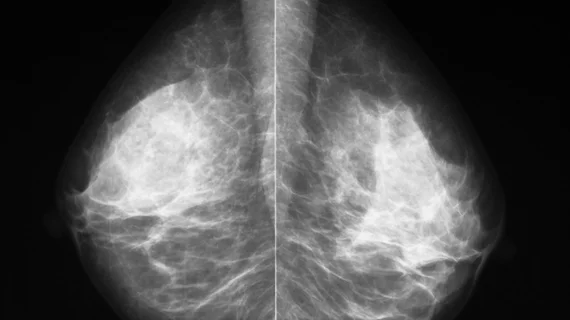Doctor reports ‘pattern’ of misread mammograms at embattled breast imaging center
Catherine Akers is one of six women currently suing radiologist and Allison Breast Center owner Michael Bigg for misreading their mammograms.
Akers filed a lawsuit in Henrico Circuit Court last month alleging Bigg wrongly interpreted her scans in 2018 and 2019, leading to a 16-month delay in her diagnosis and treatment, Richmond 6 News reported on Wednesday. Akers recently celebrated completing her chemotherapy treatment, but noted one of the cancer drugs had left her with heart failure.
The news outlet spoke with one of Akers’ doctors, James Khatcheressian, MD, an oncologist at the Virginia Cancer Institute who says that Bigg’s mistakes are more than just human error, but rather a “pattern of misdiagnoses.”
"I don't think he should be allowed to practice radiology and certainly any type of medicine. That's my personal opinion," Khatcheressian told the news outlet.
Back in May, the Virginia Board of Medicine suspended Michael Bigg’s medical license and put out a lengthy report that determined he wrongly interpreted 18 mammograms. And the U.S. Food and Drug Administration recently pulled Allison Breast Cancer Center’s mammography certification after a review revealed quality issues in its exams.
Richmond 6 contacted Bigg’s lawyers and received the statement below.
"Dr. Bigg has been practicing radiology for over 40 years and has saved the lives of countless patients. He trusts the legal process and will not try cases in the media,” attorney Edward McNelis with Sands Anderson wrote.
Bigg filed a response in court denying all allegations against him.
Read more from the news outlet below.

